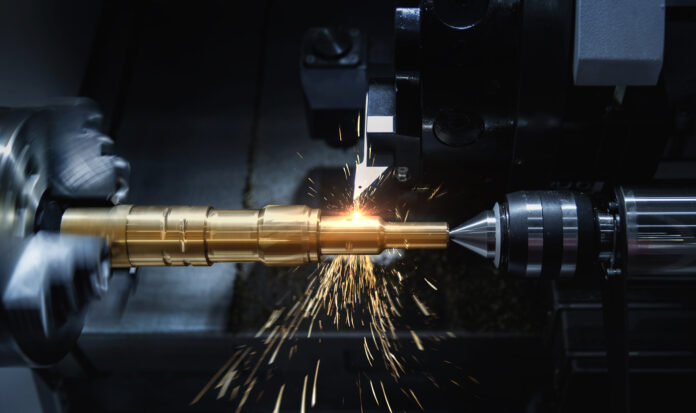Machine shops that have historically lacked unbiased, expert guidance on selecting better tooling for their specific applications now have online access to comprehensive resources that cover the breadth of the marketplace with no strings attached.
In the industry, smaller machine shops face challenges not only in the wide range of applications and materials they encounter but also in selecting the tooling that will best accommodate it.
“I’ve seen many machine shops essentially over-spec the tools they need for a new project, and it is costing them a lot of money,” said Lermit Diaz, founder and CEO of SCTools, a Michigan-based national distributor to machine shops. “It can work the other way too, where the machine shop ends up not getting the best tool for the job, costing them time and material to make it work.”
Unlike an OEM, which may dedicate a machine to a single material or to one operation, smaller CNC machine shops survive by being able to machine a variety of materials for customers across diverse sectors such as aerospace, medical, semiconductors, electronics, automotive and general parts.
“A machine shop may be cutting stainless steel one day, forged steel the next, and then have an order for aluminum parts,” said Diaz. “Flexibility is important, but it is very difficult for a smaller shop to stay current with the latest information on all materials and all styles of machining. They don’t have the margins the large OEMs have to hire a mechanical engineer or purchase separate tooling for every material machined.”
The Need for Education
The idea to develop free online resources to assist small and medium-sized CNC machine shops came from the questions that Diaz would get from customers. “Every time I visited customers, they asked a lot of questions. They might not know how to do a specific job, or they wanted to know how to do it better. That sparked the idea to provide free online machining resources for the industry.”
Diaz wanted to fill an education gap that he saw when looking at the traditional relationship between a shop and their distributor.
“So many shops go to a distributor website and order several different tools, cutters, or inserts and still don’t achieve the desired [machining] result. They may also run the tool on the machine incorrectly. That means they are spending money hand-over-fist because they are purchasing tools they don’t need, and instead of getting five to ten parts per cutter, they might get one.”
Sharing Machining Knowledge
To empower smaller CNC machine shops to make the right decisions on their machining orders, Diaz created TechTips, a free online resource where questions can be answered before they bid on projects and purchase new equipment. The website page was created solely for educational purposes to assist small and medium-sized CNC machine shops, with no obligations to purchase from the distributor that hosts the content, SCTools. For those that simply want to call in and get questions answered, the support staff at SCTools has extensive knowledge and often hands-on machining background that includes operating equipment and programming.
The online resource is a significant database of technical knowledge. Since launching the TechTips database, it has grown to over 1,500 electronic pages of resources for the machining industry with plans to expand it to 2,000 pages by the end of the year. The database continues to increase its glossary to facilitate topic searches. Content areas include turning, milling, drilling, tapping, metals, calculation & programming, and grinding. To give an example of just how detailed this resource is, a section on how to machine the most common materials in the market is over 700 pages.
For those interested in new developments in the industry, a weekly e-newsletter called TechTalk from SCTools also provides content on a wide range of topics including machining, grinding, cutting tools, metals, and coatings.
Reexamining the Role of Parts Distributors
When founding SCTools, Diaz wanted to challenge the traditional role of a distributor.
“Traditionally distributors will serve you if you have a part number,” said Diaz. “Instead, the focus should be on the customer’s application to identify just the tools they need. There are many distributors that CNC machine shops can go to if they just want to order a part and have the order filled. Instead, we are trying to be more of a resource for the smaller machine shops, a partner to go to for advice and help.”
According to Jason Huo, Manager at Cold Forging, Dyna-Mig, a division of F&P Mfg., Inc: “In choosing tooling options for the development of a new model, we have definitely benefited from relying on expert guidance rather than resorting to lengthy, more costly trials.”
Online resources that make a wide span of technical machining knowledge available to small and medium-sized machine shops are enabling them to make better decisions as they take on new projects. In the process, the traditional relationship between machine shop and distributor is evolving to be more of a partnership.





















